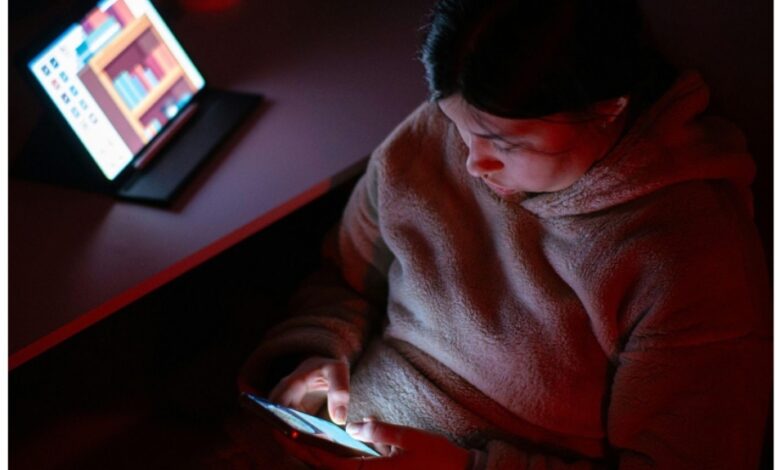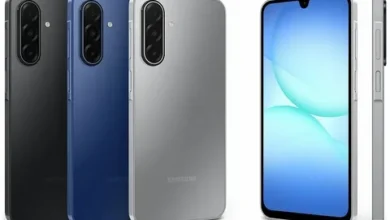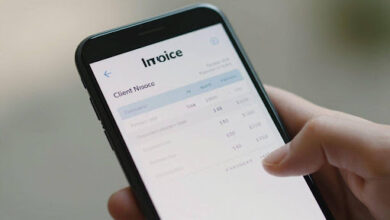Why Modern Tech Addicts Are Turning to Digital Detox Retreats

You know the moment. You’re scrolling, scrolling, scrolling—maybe it’s social media, maybe it’s Slack messages, or maybe it’s that weird rabbit hole of late-night Reddit threads. Either way, your eyes burn, your brain feels like oatmeal, and yet you can’t stop.
It’s no wonder people are chasing spaces to unplug and recharge. From unplugged forest cabins to infrared sauna sessions at places like Nordica Sauna, there’s a quiet revolution happening—one where real peace trumps Wi-Fi speeds.
Welcome to the age of the digital detox retreat, where wellness meets withdrawal—and no, we’re not talking about quitting caffeine (although that’s probably not a bad idea either).
From Infinite Scroll to Emotional Drain: The Tech Overload Reality
Modern tech is brilliant—until it burns us out. We’re surrounded by blue light, endless notifications, and an always-on work culture that glorifies hustle while quietly draining every drop of mental clarity.
Studies show that the average person checks their phone 344 times per day. That’s once every four minutes. Combine that with Zoom fatigue, doomscrolling, and the “digital guilt” that creeps in when you miss a Slack ping, and it’s not just screen time—it’s stress time.
The symptoms are subtle at first: poor sleep, attention fragmentation, lower productivity. Then comes anxiety, burnout, even depression. We weren’t built for this much stimulation, and frankly, our neurons are waving white flags.
The Rise of the Detox: Not Just a Buzzword
“Digital detox” isn’t just a wellness trend for Instagram influencers anymore. It’s become a survival strategy for people trying to reclaim their mental bandwidth.
Digital detox retreats are booming. These are curated experiences—ranging from full-blown silent meditation in the Himalayas to luxury wellness weekends in upstate New York—where Wi-Fi is off, phones are locked away, and presence becomes the ultimate luxury.
Even corporate teams are getting in on it, sending high performers to these retreats to prevent burnout. It turns out that productivity isn’t just about doing more—it’s about doing less, better.
What Happens at a Digital Detox Retreat?
Here’s what you won’t find: phone chargers on the nightstand, email alerts, or Instagrammable latte art. What you will find: slow mornings, journaling prompts, guided breathwork, long walks, communal dinners, and often—saunas.
Why saunas? Because heat-based therapies like infrared sauna sessions offer both physical and emotional detox benefits. They encourage sweating out toxins, improving circulation, reducing stress hormones, and giving the mind a break.
This is where high-end wellness tools come into play. Brands like Nordica Sauna provide the kind of at-home or on-site experiences that mimic professional retreats. And it’s not just about the steam—it’s about the science. Infrared therapy, when used consistently, has been shown to reduce anxiety and improve sleep over time.
How Tech Detox Became a Billion-Dollar Business
Let’s be clear—unplugging is no longer fringe. It’s a full-fledged economy. From retreats in Tulum and Bali to “offline pods” in coworking spaces, digital detox is now baked into the luxury wellness industry.
Some Airbnb rentals even advertise “no Wi-Fi” as a feature, not a bug. Hotels now boast “tech-free floors.” There’s a growing market for analog experiences that promise to restore our attention spans and reboot our nervous systems.
Big brands have noticed too. Companies like Apple and Google, ironically, are building digital well-being tools into their products—from screen time limits to grayscale modes. But here’s the kicker: turning off a feature isn’t the same as turning off the world. Hence, the rise of immersive, out-of-reach wellness escapes.
The Neurobiology of Unplugging: Why It Works

Taking time away from screens doesn’t just feel good, it changes your brain. According to research from the National Institutes of Health, excessive screen time—especially in younger people—can impact brain structure, shrinking gray matter linked to empathy and emotional regulation.
On the flip side, time in nature, movement-based practices like yoga or hiking, and heat therapy (like sauna use) increase dopamine and serotonin levels. In short: digital detox isn’t just a vibe, it’s a scientifically backed brain reboot.
This matters for everyone, but especially for those in high-stakes, screen-heavy fields like tech, finance, or remote work culture. Taking the time to step away is like defragmenting your hard drive—clearing clutter and boosting performance.
Who’s Detoxing and Why?
It’s not just spiritual seekers or wellness influencers jumping on the digital detox bandwagon. The movement is gaining traction across a wide demographic:
- Entrepreneurs looking to reset after product launches
- Remote workers suffering from Zoom fatigue
- Parents trying to reconnect with family time
- Gamers and streamers stepping away from burnout cycles
- College students needing mental clarity during finals
And it’s not just about peace. Many users report increased creativity, better decision-making, and enhanced social connection after unplugging for even 48 hours.
Building Your Own Mini Detox Retreat
Not everyone can disappear into the mountains for a week, but that doesn’t mean you can’t experience the benefits of a tech break at home. The secret is intentionality.
Start with small, structured practices:
- Tech-Free Mornings: No screens for the first 60 minutes
- Offline Zones: Designate rooms or times as screen-free (bathroom counts!)
- Analog Hobbies: Pick up sketching, journaling, or gardening
- Infrared Sessions: Use a home sauna for 20–30 minutes, 3–4 times a week
- Mindful Meals: No phones at the table; just food, presence, and conversation
It’s not about punishing yourself—it’s about giving your senses something real to focus on. No pings. No scrolls. Just silence, warmth, and maybe the distant sound of birds being smugly free from screen addiction.
The Ironic Tech Future of Digital Detoxing
Here’s the twist: technology is also evolving to help us unplug. There are now minimalist phones that only call and text. Meditation pods that lock your phone away while you sit in soundproof bliss. Even apps that gamify your time offline.
This isn’t the end of tech. It’s the evolution of how we use it. Just like cheat days in dieting, digital breaks aren’t about quitting—they’re about managing. And those who figure that out early may find themselves with a powerful competitive edge: clarity.
In a culture that’s obsessed with productivity, rest feels radical. But that’s exactly why it matters.
Whether it’s a weekend retreat, a 20-minute sauna session, or just switching your phone to airplane mode while sipping herbal tea, taking time to digitally detox is no longer a luxury, it’s a necessity.
You don’t need to quit tech. You just need to reclaim your relationship with it.



